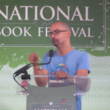The lowland: a novel
Description
National Book Award Finalist
Shortlisted for the 2013 Man Booker Prize
From the Pulitzer Prize-winning, best-selling author of The Namesake comes an extraordinary new novel, set in both India and America, that expands the scope and range of one of our most dazzling storytellers: a tale of two brothers bound by tragedy, a fiercely brilliant woman haunted by her past, a country torn by revolution, and a love that lasts long past death.Born just fifteen months apart, Subhash and Udayan Mitra are inseparable brothers, one often mistaken for the other in the Calcutta neighborhood where they grow up. But they are also opposites, with gravely different futures ahead. It is the 1960s, and Udayan—charismatic and impulsive—finds himself drawn to the Naxalite movement, a rebellion waged to eradicate inequity and poverty; he will give everything, risk all, for what he believes. Subhash, the dutiful son, does not share his brother’s political passion; he leaves home to pursue a life of scientific research in a quiet, coastal corner of America. But when Subhash learns what happened to his brother in the lowland outside their family’s home, he goes back to India, hoping to pick up the pieces of a shattered family, and to heal the wounds Udayan left behind—including those seared in the heart of his brother’s wife.Masterly suspenseful, sweeping, piercingly intimate, The Lowland is a work of great beauty and complex emotion; an engrossing family saga and a story steeped in history that spans generations and geographies with seamless authenticity. It is Jhumpa Lahiri at the height of her considerable powers.
More Details
9780385367431
9780385350402
9780739341810
Excerpt
Similar Titles From NoveList
Similar Authors From NoveList
Published Reviews
Booklist Review
*Starred Review* The clever Mitra brothers are inseparable even though Subhash is serious, cautious, and reliable, while Udayan is brash, impassioned, and rebellious. Both excel in their studies even though, thanks to Udayan, they get into mischief in their quiet, middle-class Calcutta enclave with its two adjacent ponds and water hyacinth-laced lowland, a gorgeously rendered landscape Lahiri (Unaccustomed Earth, 2008) uses to profound effect. In college, Subhash studies chemistry, Udayan physics, but while Subhash prepares to go to America to earn his PhD, Udayan experiences a life-altering political awakening. It's the late 1960s, a time of international protest, and Udayan joins the Mao-inspired Naxalite movement, which demands justice for the poor. He also secretly marries self-reliant, scholarly Gauri. Subhash's indoctrination into American life and Rhode Island's seasons and seashore is bracing and mind-expanding, while Udayan's descent into the Naxalite underground puts him in grave danger. As shocking complexities, tragedies, and revelations multiply over the years, Lahiri astutely examines the psychological nuances of conviction, guilt, grief, marriage, and parenthood and delicately but firmly dissects the moral conundrums inherent in violent revolution. Renowned for her exquisite prose and penetrating insights, Lahiri attains new heights of artistry flawless transparency, immersive intimacy with characters and place in her spellbinding fourth book and second novel, a magnificent, universal, and indelible work of literature. An absolute triumph. HIGH-DEMAND BACKSTORY: Pulitzer Prize winner Lahiri's standing increases with each book, and this is her most compelling yet, hence the 350,000 first printing, national author tour, and major publicity campaign.--Seaman, Donna Copyright 2010 Booklist
Publisher's Weekly Review
When Subhash's closest friend and brother, Udayan, is killed because of his participation in a revolutionary movement in Calcutta in the 1960s, he attempts to do the responsible thing and take his brother's pregnant wife, Gauri, with him to the United States, where he is pursuing education and a new life. Yet both Subhash and Gauri will be haunted by and need to confront the absence of Udayan as the years pass. The waves of emotion and duress that ripple through Lahiri's narrative are well communicated in Malhotra's narration. Intentionally or not, his voice at times can feel disconnected from the text, which ably captures moments in which the characters are attempting to distance themselves from each other. Malhotra is capable of teasing out the emotional depth of a given scene with emphasis and timing. He maintains consistent voices for his characters and balances the different accents that emerge during this intergenerational tale. A Knopf hardcover. (Sept.) (c) Copyright PWxyz, LLC. All rights reserved.
Library Journal Review
Pulitzer Prize winner Lahiri's (The Interpreter of Maladies) unparalleled ability to transform the smallest moments into whole lives pinnacles in this extraordinary story of two brothers-so close that one is "the other side" of the other-coming of age in the political tumult of 1960s India. They are separated as adults, with Subhash, the elder, choosing an academic career in the United States and the more daring Udayan remaining in Calcutta, committed to correcting the inequities of his country. Udayan's political participation will haunt four generations, from his parents, who renounce the future, to his wife and his brother, who attempt to protect it, to the daughter and granddaughter who will never know him. VERDICT Lahiri is remarkable, achieving multilayered meaning in an act as simple as "banging the edge of the lid three or four times with a spoon, to break the seal"; her second novel and fourth title is deservedly one of this year's most anticipated books. Banal words of praise simply won't do justice; perhaps what is needed is a three-word directive: just read it. [See Prepub Alert, 3/18/13.]-Terry Hong, Smithsonian -BookDragon, Washington, DC (c) Copyright 2013. Library Journals LLC, a wholly owned subsidiary of Media Source, Inc. No redistribution permitted.
Kirkus Book Review
A tale of two continents in an era of political tumult, rendered with devastating depth and clarity by the Pulitzer Prizewinning author. The narrative proceeds from the simplicity of a fairy tale into a complex novel of moral ambiguity and aftershocks, with revelations that continue through decades and generations until the very last page. It is the story of two brothers in India who are exceptionally close to each other and yet completely different. Older by 15 months, Subhash is cautious and careful, not prone to taking any risks, unlike his impetuous brother Udayan, the younger but the leader in their various escapades. Inseparable in their Calcutta boyhoods, they eventually take very different paths, with Subhash moving to America to pursue his education and an academic career in scientific research, while Udayan becomes increasingly and clandestinely involved in Indian radical militancy. "The chief task of the new party was to organize the peasantry," writes the novelist (Unaccustomed Earth, 2008, etc.). "The tactic would be guerrilla warfare. The enemy was the Indian state." The book's straightforward, declarative sentences will ultimately force the characters and the reader to find meaning in the space between them. While Udayan characteristically defies his parents by returning home with a wife he has impulsively courted rather than submitting to an arranged marriage, Subhash waits for his own life to unfold: "He wondered what woman his parents would choose for him. He wondered when it would be. Getting married would mean returning to Calcutta. In that sense he was in no hurry." Yet crisis returns him to Calcutta, and when he resumes his life in America, he has a pregnant wife and, soon, a daughter. The rest of the novel spans more than four decades in the life of this family, shaped and shaken by the events that have brought them together and tear them apart--"a family of solitaries [that]...had collided and dispersed." Though Lahiri has previously earned greater renown for her short stories, this masterful novel deserves to attract an even wider readership.]] Copyright Kirkus Reviews, used with permission.
Booklist Reviews
*Starred Review* The clever Mitra brothers are inseparable even though Subhash is serious, cautious, and reliable, while Udayan is brash, impassioned, and rebellious. Both excel in their studies even though, thanks to Udayan, they get into mischief in their quiet, middle-class Calcutta enclave with its two adjacent ponds and water hyacinth-laced lowland, a gorgeously rendered landscape Lahiri (Unaccustomed Earth, 2008) uses to profound effect. In college, Subhash studies chemistry, Udayan physics, but while Subhash prepares to go to America to earn his PhD, Udayan experiences a life-altering political awakening. It's the late 1960s, a time of international protest, and Udayan joins the Mao-inspired Naxalite movement, which demands justice for the poor. He also secretly marries self-reliant, scholarly Gauri. Subhash's indoctrination into American life and Rhode Island's seasons and seashore is bracing and mind-expanding, while Udayan's descent into the Naxalite underground puts him in grave danger. As shocking complexities, tragedies, and revelations multiply over the years, Lahiri astutely examines the psychological nuances of conviction, guilt, grief, marriage, and parenthood and delicately but firmly dissects the moral conundrums inherent in violent revolution. Renowned for her exquisite prose and penetrating insights, Lahiri attains new heights of artistry—flawless transparency, immersive intimacy with characters and place—in her spellbinding fourth book and second novel, a magnificent, universal, and indelible work of literature. An absolute triumph. HIGH-DEMAND BACKSTORY: Pulitzer Prize winner Lahiri's standing increases with each book, and this is her most compelling yet, hence the 350,000 first printing, national author tour, and major publicity campaign. Copyright 2013 Booklist Reviews.
Library Journal Reviews
Born 15 months apart in Calcutta, Subhash and Udayan Mitra nevertheless differ greatly: Udayan joins the insurgent Naxalite movement, while Subhash conducts scientific research in America. But when tragedy strikes, Subhash must return home. Love, responsibility, and idealism in a significant Sixties setting, with Pulitzer Prize winner Lahiri doing what she does best; a nine-city tour.
[Page 56]. (c) Copyright 2013. Library Journals LLC, a wholly owned subsidiary of Media Source, Inc. No redistribution permitted.Library Journal Reviews
Pulitzer Prize winner Lahiri's (The Interpreter of Maladies) unparalleled ability to transform the smallest moments into whole lives pinnacles in this extraordinary story of two brothers—so close that one is "the other side" of the other—coming of age in the political tumult of 1960s India. They are separated as adults, with Subhash, the elder, choosing an academic career in the United States and the more daring Udayan remaining in Calcutta, committed to correcting the inequities of his country. Udayan's political participation will haunt four generations, from his parents, who renounce the future, to his wife and his brother, who attempt to protect it, to the daughter and granddaughter who will never know him. VERDICT Lahiri is remarkable, achieving multilayered meaning in an act as simple as "banging the edge of the lid three or four times with a spoon, to break the seal"; her second novel and fourth title is deservedly one of this year's most anticipated books. Banal words of praise simply won't do justice; perhaps what is needed is a three-word directive: just read it. [See Prepub Alert, 3/18/13.]—Terry Hong, Smithsonian BookDragon, Washington, DC
[Page 87]. (c) Copyright 2013. Library Journals LLC, a wholly owned subsidiary of Media Source, Inc. No redistribution permitted.Publishers Weekly Reviews
Lahiri's (The Namesake) haunting second novel crosses generations, oceans, and the chasms that despair creates within families. Subhash and Udayan are brothers, 15 months apart, born in Calcutta in the years just before Indian independence and the country's partition. As children, they are inseparable: Subhash is the elder, and the careful and reserved one; Udayan is more willful and wild. When Subhash moves to the U.S. for graduate school in the late 1960s, he has a hard time keeping track of Udayan's involvement in the increasingly violent Communist uprising taking place throughout West Bengal. The only person who will eventually be able to tell Subhash, if not quite explain, what happened to his brother is Gauri, Udayan's love-match wife, of whom the brothers' parents do not approve. Forced by circumstances, Gauri and Subhash form their own relationship, one both intimate and distant, which will determine much of the rest of their adult lives. Lahiri's skill is reflected not only in her restrained and lyric prose, but also in her moving forward chronological time while simultaneously unfolding memory, which does not fade in spite of the years. A formidable and beautiful book. 350,000-copy announced first printing. Agent: Eric Simonoff, WME Entertainment. (Sept.)
[Page ]. Copyright 2013 PWxyz LLC


































